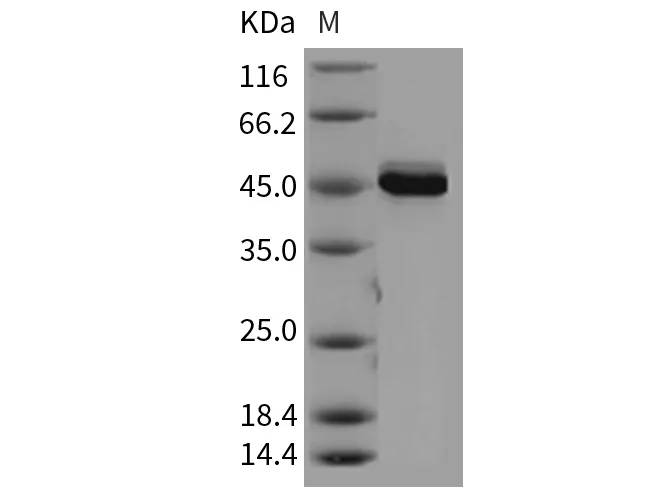Recombinant Mouse AKT3 Protein (aa 106-479)
CAT:
763-PKSM040289
Size:
50 µg
Price:
Ask
- Availability: 24/48H Stock Items & 2 to 6 Weeks non Stock Items.
- Dry Ice Shipment: No




Recombinant Mouse AKT3 Protein (aa 106-479)
- Background: v-akt murine thymoma viral oncogene homolog 3 (AKT3), also known as PKB-GAMMA, with AKT1/PKBalpha, AKT2/PKBbeta, are the memerbers of Akt kinase family, share extensive structural similarity and perform common as well as unique functions within cells. The Akt signaling cascade initiates at the cell surface when growth factors or other extracellular stimuli activate phosphoinositide 3-kinase (PI3K). AKT3 was discovered to be the predominant isoform activated in sporadic melanomas. Levels of activity increased during melanoma progression with metastatic melanomas having the highest activity. Although mechanisms of AKT3 activation remain to be fully characterized, overexpression of AKT3 and decreased PTEN activity play important roles in this process. Targeted reduction of AKT3 activity decreased survival of melanoma tumor cells leading to inhibition of tumor development, which may be therapeutically effective for shrinking tumors in melanoma patients. AKT2 and AKT3 play an important role in the viability of human malignant glioma cells. Targeting AKT2 and AKT3 may hold promise for the treatment of patients with gliomas.
- Synonyms: AI851531, D930002M15Rik, Nmf350
- CAS Number: 9000-83-3
- UniProt: Q9WUA6
- Accession Number: Q9WUA6-1
- Host: Baculovirus
- Origin Species: Mouse
- Tag: None
- Sequence: Ala106-Glu479
- Applications: Enzyme
- Purity: > 95 % as determined by reducing SDS-PAGE.
- Bioactivity: The specific activity was determined to be 20 nmol/min/mg using synthetic GSK3-derived peptide (R11-SGRARTSSFAEPGGK) as substrate.
- Reconstitution: Not Applicable
- Molecular Weight: 46 kDa
- Shipping Conditions: This product is provided as liquid. It is shipped at frozen temperature with blue ice/gel packs. Upon receipt, store it immediately at < - 20°C.
- Storage Conditions: Store at < -20°C, stable for 6 months. Please minimize freeze-thaw cycles.
